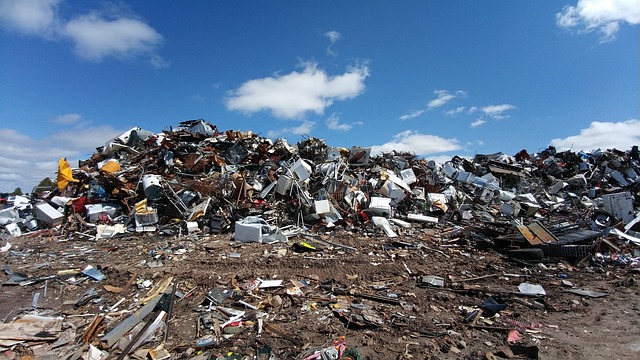EN 16208 Chromium Content in Industrial Waste
The European standard EN 16208 provides a method to determine the total chromium content, as well as the speciation of hexavalent and trivalent chromium in industrial waste. This service is crucial for industries handling hazardous materials, ensuring compliance with environmental regulations and occupational health standards.
Chromium exists in various forms, each with different toxicity profiles. Hexavalent chromium (Cr(VI)) poses a significant risk to human health and the environment due to its carcinogenic properties when inhaled or ingested. On the other hand, trivalent chromium (Cr(III)) is generally less toxic but can still contribute to environmental pollution if not managed properly.
The methodology outlined in EN 16208 involves several steps that include sample preparation, digestion of the waste material, and subsequent analysis using various techniques such as inductively coupled plasma mass spectrometry (ICP-MS) or inductively coupled plasma optical emission spectroscopy (ICP-OES). These analytical methods are chosen for their high precision and accuracy.
Sample preparation is critical to ensure accurate results. This includes drying, grinding the waste material into a fine powder, and homogenization to ensure uniformity across the sample. Digestion typically involves the use of strong acids like nitric acid or perchloric acid at elevated temperatures to break down complex compounds into simpler forms that can be readily analyzed.
The analytical techniques used in this service are designed to provide accurate quantification of chromium species present in the waste. ICP-MS is particularly useful for its ability to detect low concentrations of chromium and provides isotopic information which can help differentiate between different sources of chromium contamination. ICP-OES, on the other hand, offers faster analysis times but may not have the same level of specificity as ICP-MS.
Accurate quantification is essential for several reasons. Firstly, it helps in assessing the environmental impact of the waste by providing insights into the potential risks associated with specific chromium species. Secondly, it aids in compliance with regulatory requirements such as the European Union's Waste Framework Directive which aims to reduce the generation and negative impacts of waste on human health and the environment.
The results obtained from this service are used by various stakeholders including quality managers, compliance officers, R&D engineers, and procurement teams. Quality managers use these data points to ensure that their processes meet environmental standards. Compliance officers rely on them for regulatory reporting purposes. R&D engineers can leverage the insights gained into optimizing waste management practices. Procurement teams might use this information when selecting suppliers or evaluating new technologies.
This service is not only beneficial within Europe but also internationally, especially in regions where similar regulations are being considered or implemented. By adhering to international standards like EN 16208, industries can demonstrate their commitment to sustainability and responsible waste management practices.
Real-world applications of this service include the chemical industry, metal production facilities, and waste treatment plants. In these sectors, understanding the chromium content in industrial waste is vital for proper disposal strategies and recycling processes. For instance, knowing which parts of the waste contain hazardous levels of Cr(VI) allows companies to implement targeted remediation efforts.
Moreover, this information can influence product design and manufacturing processes by helping identify safer alternatives or ways to reduce chromium content in end products. It also plays a role in improving operational efficiency through better resource utilization during production stages.
Why Choose This Test
- Comprehensive evaluation of chromium species in industrial waste.
- Ensures compliance with European Union regulations and other international standards.
- Supports informed decision-making for environmental protection and occupational health.
- Promotes sustainable practices by enabling more efficient recycling methods.
The EN 16208 method provides a robust framework for determining chromium content in industrial waste. By choosing this test, organizations can ensure that they are not only meeting current legal requirements but also contributing positively towards environmental sustainability goals. This service offers peace of mind knowing that every effort is being made to protect both people and the planet.
Customer Impact and Satisfaction
- Achieve regulatory compliance with accurate chromium content analysis.
- Enhance reputation through transparent reporting on environmental performance.
- Reduce operational costs by optimizing waste management processes.
- Promote employee safety in hazardous environments involving chromium compounds.
The impact of this service extends beyond mere compliance; it contributes to broader organizational goals related to corporate social responsibility (CSR). Companies that invest in such services demonstrate leadership in addressing environmental challenges, which can enhance their brand image and attract customers who value sustainability. Additionally, by ensuring safe working conditions for employees exposed to chromium compounds, organizations contribute positively towards workplace safety initiatives.
Customer satisfaction is a key indicator of our service quality. Our team works closely with clients throughout the testing process, providing clear communication regarding expectations, timelines, and results interpretation. We also offer tailored advice based on individual business needs, ensuring that every client receives solutions that best suit their specific requirements.
International Acceptance and Recognition
The EN 16208 method has gained widespread acceptance across Europe and beyond. Its adoption reflects the growing awareness about the need for consistent methodologies when assessing chromium content in industrial waste globally. Many countries outside of Europe have either adopted this standard directly or developed their own versions based on its principles.
International recognition enhances confidence among clients regarding the reliability and accuracy of our results. It also facilitates smoother trade between nations by ensuring that there is a common language for discussing environmental concerns related to industrial waste management.





